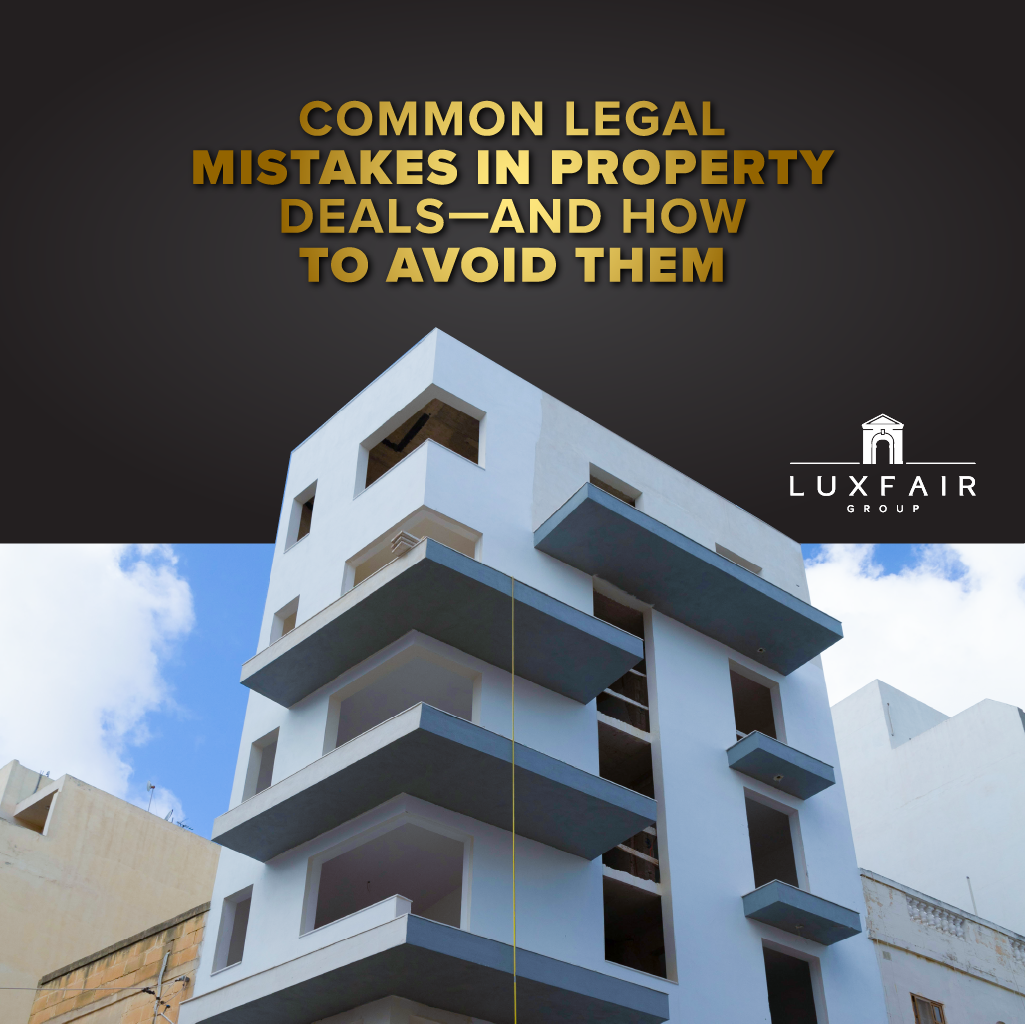Buying or selling property in Malta is a significant investment, and while the process may seem straightforward, there are many legal pitfalls that could catch you out. Here are some of the most common mistakes in Maltese property deals and how to avoid them in 2024:
1. Not Checking for Clear Title Deeds
Before purchasing property in Malta, it’s crucial to ensure the title deed is clear and the seller has the legal right to sell. Issues such as inherited property or unresolved disputes can lead to delays or, worse, invalid sales. Always work with a reputable notary who will perform the necessary due diligence.
2. Overlooking Zoning and Building Regulations
Zoning laws in Malta can restrict what you can do with a property. For example, if you’re buying land with plans to build, certain zones may not permit residential construction. Ensure you check zoning regulations and building permissions to avoid problems down the line.
3. Ignoring Ground Rent (Cens) Obligations
Some properties in Malta are sold with ground rent, which is an ongoing cost to the owner. Many buyers overlook this, only to be surprised by annual fees later. Make sure you confirm whether ground rent applies and how much it will cost you.
4. Not Registering the Sale with the Authorities
Once the sale is complete, it’s essential to ensure that both the Promise of Sale and the Final Contract are registered with the Public Registry. Failure to register these documents can lead to legal complications and invalidate the transfer of ownership. This process is typically handled by your notary, so we recommend requesting proof of registration from them to confirm that everything has been properly recorded.
5. Failing to Consider Tax Implications
Property transactions in Malta come with tax obligations, such as capital gains tax for sellers and stamp duty for buyers. Make sure you understand what taxes are due and how much they’ll cost before you commit to a deal.
Avoiding these common legal mistakes can save you time, money, and stress. Always consult with a legal expert or notary throughout the process to ensure everything is in order and above board.

